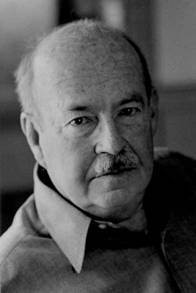Talcott Parsons
American sociologist and professor
Talcott Parsons (December 13, 1902 – May 8, 1979) was an American sociologist known for his development of a general theory for the study of society called structural functionalism. He served as a professor at Harvard University and was a key figure in the development of the field of sociology in the United States.
Early life and education[edit | edit source]
Talcott Parsons was born in Colorado Springs, Colorado, to a family with a strong academic background. His father, Edward Smith Parsons, was a professor and later the president of Marietta College. Parsons attended Amherst College, where he studied biology and philosophy, graduating in 1924. He then went on to study at the London School of Economics and later at the University of Heidelberg, where he received his Ph.D. in sociology in 1927.
Academic career[edit | edit source]
Parsons began his academic career at Harvard University in 1927, where he initially taught economics. Over time, his focus shifted to sociology, and he became a central figure in the establishment of the Department of Social Relations at Harvard. His work was instrumental in the development of sociology as a distinct academic discipline in the United States.
Structural functionalism[edit | edit source]
Parsons is best known for his theory of structural functionalism, which posits that society is a complex system whose parts work together to promote stability and social order. This theory emphasizes the interdependence of social institutions and their roles in maintaining societal equilibrium. Parsons' work in this area was influenced by earlier sociologists such as Émile Durkheim and Max Weber.
The AGIL paradigm[edit | edit source]
One of Parsons' significant contributions to sociology is the AGIL paradigm, a framework for analyzing social systems. The AGIL paradigm identifies four functional imperatives that are necessary for the survival of any social system: Adaptation, Goal attainment, Integration, and Latency (pattern maintenance). Each of these functions corresponds to a subsystem within society that addresses specific needs.
Influence and legacy[edit | edit source]
Parsons' work had a profound impact on the field of sociology, particularly in the mid-20th century. His theories provided a comprehensive framework for understanding social systems and their dynamics. Although his ideas have been subject to criticism and debate, particularly from proponents of conflict theory and symbolic interactionism, Parsons remains a central figure in sociological theory.
Related pages[edit | edit source]
Search WikiMD
Ad.Tired of being Overweight? Try W8MD's physician weight loss program.
Semaglutide (Ozempic / Wegovy and Tirzepatide (Mounjaro / Zepbound) available.
Advertise on WikiMD
|
WikiMD's Wellness Encyclopedia |
| Let Food Be Thy Medicine Medicine Thy Food - Hippocrates |
Translate this page: - East Asian
中文,
日本,
한국어,
South Asian
हिन्दी,
தமிழ்,
తెలుగు,
Urdu,
ಕನ್ನಡ,
Southeast Asian
Indonesian,
Vietnamese,
Thai,
မြန်မာဘာသာ,
বাংলা
European
español,
Deutsch,
français,
Greek,
português do Brasil,
polski,
română,
русский,
Nederlands,
norsk,
svenska,
suomi,
Italian
Middle Eastern & African
عربى,
Turkish,
Persian,
Hebrew,
Afrikaans,
isiZulu,
Kiswahili,
Other
Bulgarian,
Hungarian,
Czech,
Swedish,
മലയാളം,
मराठी,
ਪੰਜਾਬੀ,
ગુજરાતી,
Portuguese,
Ukrainian
Medical Disclaimer: WikiMD is not a substitute for professional medical advice. The information on WikiMD is provided as an information resource only, may be incorrect, outdated or misleading, and is not to be used or relied on for any diagnostic or treatment purposes. Please consult your health care provider before making any healthcare decisions or for guidance about a specific medical condition. WikiMD expressly disclaims responsibility, and shall have no liability, for any damages, loss, injury, or liability whatsoever suffered as a result of your reliance on the information contained in this site. By visiting this site you agree to the foregoing terms and conditions, which may from time to time be changed or supplemented by WikiMD. If you do not agree to the foregoing terms and conditions, you should not enter or use this site. See full disclaimer.
Credits:Most images are courtesy of Wikimedia commons, and templates, categories Wikipedia, licensed under CC BY SA or similar.
Contributors: Prab R. Tumpati, MD

